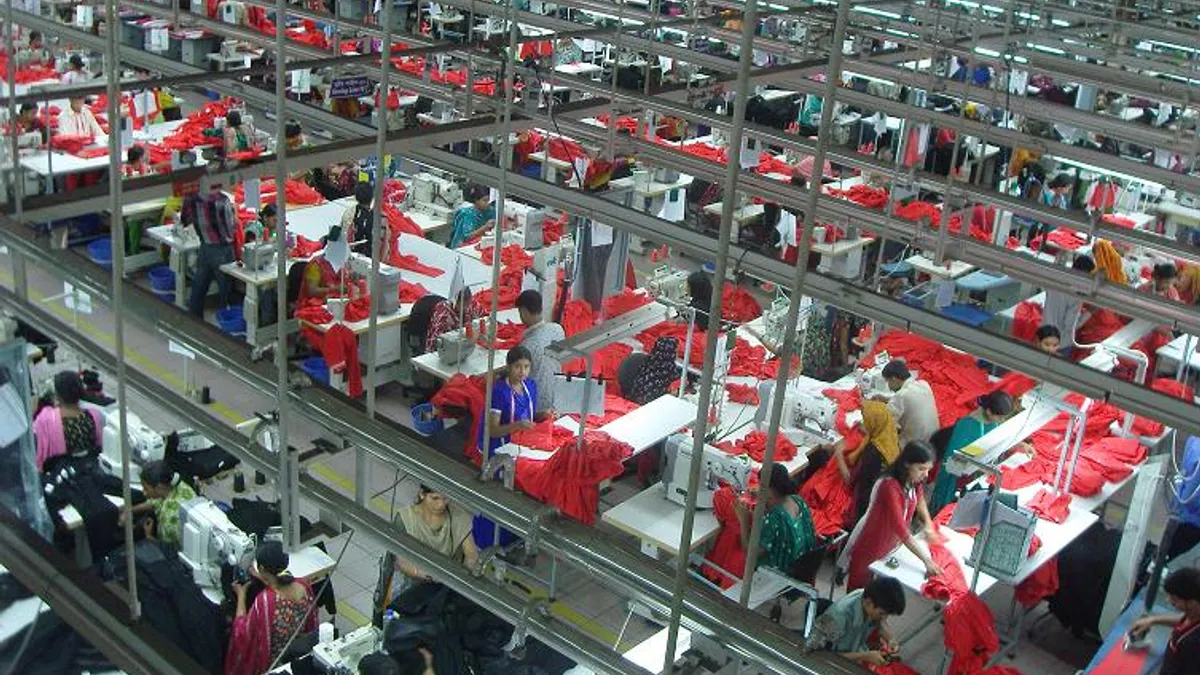UPDATE: April 14, 2020: India extended its nationwide lockdown Tuesday until May 3, according to the New York Times. Multiple media reports suggest Indian Prime Minister Narendra Modi may announce a plan to reopen some factories under new guidelines for operation later in the week.
Bangladesh manufacturers will remain closed until April 25, according to The Daily Star. The Bangladesh Garment Manufacturers and Exporters Association (BGMEA) and the Bangladesh Knitwear Manufacturers and Exporters Association (BKMEA) reportedly jointly announced the news via a WhatsApp message to journalists Friday.
Dive Brief:
- Factories across India and Bangladesh will close as the coronavirus spreads through the countries and demand dries up from U.S. and European buyers, according to multiple media reports.
- Foxconn, an Apple supplier, said it would stop production in India until April 14 in compliance with government orders, according to Reuters. MRF and Maxxis, two automotive suppliers, also suspended operations, according to The Economic Times.
- Bangladesh imposed a strict nationwide quarantine measures, adding another complication for the country's factories that are facing a rising number of order cancelations, according to media reports.
Dive Insight:
Many U.S. companies looked for sourcing options outside of China when the pandemic began shutting down factories and as a result of the ongoing trade war. India was regularly on the top of the list of alternatives along with Vietnam and Mexico.
Trade between the U.S. and India has increased steadily over the last decade, becoming the U.S.' eighth largest trading partner. Likewise, Bangladesh has become an important link with the U.S., importing nearly $4 billion worth of apparel from the country between 2010 and 2019, according to the Census.
The shutdowns in both countries highlight how difficult — if impossible — it is to find a sourcing location immune from a global pandemic.
"The nationwide shutdowns will have a significant impact on India’s smartphone industry, which is the world’s second largest after China," Tim Yu, an Asia-Pacific risk intelligence analyst at Resilience360, told Supply Chain Dive in an email. "The industry was already impacted by severe shipment delays for critical components sourced from Chinese suppliers at the height of the COVID-19 outbreak in China back in late February/early March."
Even if a factory is open, logistics within India have been complicated as a result of the shutdown. "[S]evere roadway disruptions in India due the lack of available driver and respective state restrictions have meant that only essential goods (e.g., life sciences and food productions) have been permitted beyond inter-state borders," Yu said.
Factories are closing at a time when demand for many of the products they're producing is on the decline. Stores don't need as much inventory as they close their doors around the world to help prevent the spread of the virus. Brands including H&M, Marks and Spencer and Primark have all canceled orders, Yu said.
The Bangladesh Garment Manufacturers and Exporters Association said there has been $2.4 billion worth of ready-made garment order cancelations affecting 738 factories, according to Anadolu Agency.
This article was updated to clarify U.S. importer behavior and sourcing alternatives.
Additional reporting by Emma Cosgrove.













